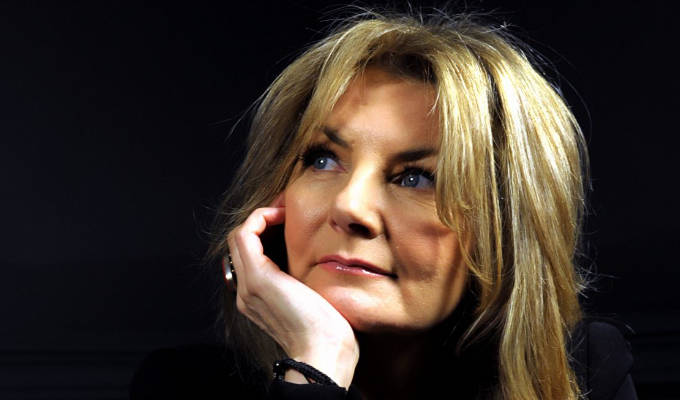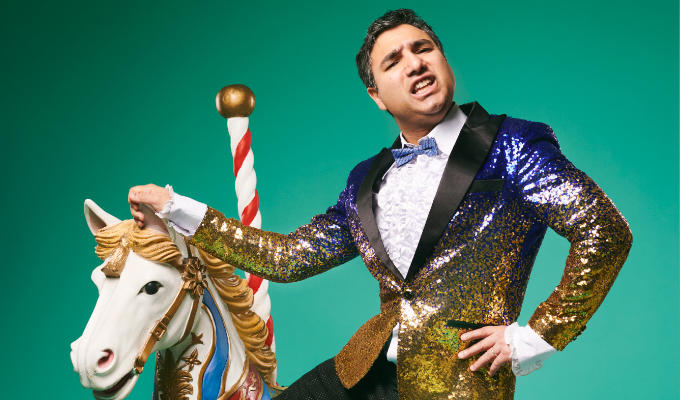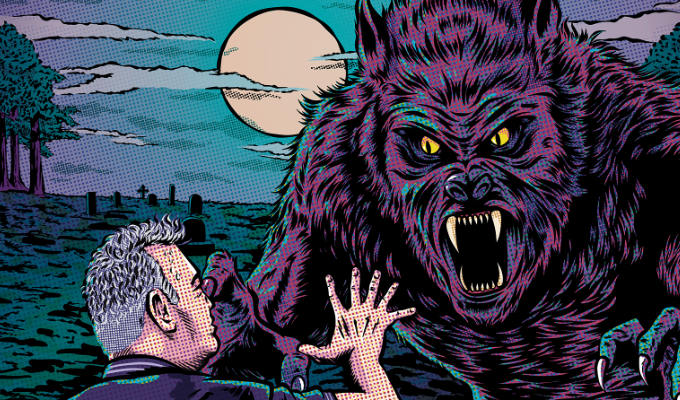
The Funny Thing About Death by Jo Caulfield
Review of the comedian's memoir about her late sister
Understandably, there's a sizeable part of the publishing industry devoted to well-meaning cancer memoirs. From writers 'battling' the prolific killer chronicling their struggles, or from those caring for ailing loved ones sharing their experience. Often for readers desperate to understand the disease after diagnosis.
The writer Annie Caulfield would have been furious to be the subject of such a memoir, to be bested or defined by the disease in that way. And her younger sister, Jo, the stand-up, would have hated herself for writing it.
Yet here we are. A moving, occasionally beautiful but down-to-earth account of family ties, creative ambition and lust for life, The Funny Thing About Death is the comic's first book and it admirably succeeds in conveying Jo's assertion that 'cancer was the least interesting thing about Annie'.
Indifferent as to whether it attacks fierce, rebellious individuals like her sister or 'arseholes' like Lance Armstrong, cancer did not provoke the Caulfields to open positivity in the face of adversity. Rather, there was incomprehension, some recrimination, reconciliation, secrets, lies, and a mutual refusal to let it dictate the course of their lives.
There wasn't even awareness of just how devastating it could be. Almost right up until Annie died in 2016, aged 57, Caulfield admits that she was often ignorant of her sister's prognosis, believing that she would recover, leave the hospice and simply go home.
Partly this was self-protection. But partly it was allowing Annie, who preferred the freedom of writing for radio to the compromises of television, to retain control of her own story.
The sisters and their Catholic priest brother shielded their mother, still grieving the recent loss of their father, from reality. Annie too though, was always more of a do-er than a reflective type. She seems for the longest time to have been convinced that death wouldn't get her. She still had so much left to write.
With the blessing of Annie's partner, Martin, Jo includes several pieces penned by her sister in the book, invariably droll, witty vignettes. Annie devoted much of her life to writing about other people, those she believed to be far more interesting than her, the product of a boring, Anglo-Irish, itinerant Forces upbringing who never settled anywhere for long when they were young. That and her cloistered convent education inspired a restless, sometimes reckless wanderlust and desire for adventure in her, manifesting in a particular preoccupation with Africa and the civil rights movement.
Nevertheless, her posthumous book, My Cambodian Twin, about her relationship with Sophea Kagna, a dancer who survived Pol Pot's massacres, was part of Annie's growing willingness to write about herself in the years leading up to her death. Jo maintains that one of the most wretched aspects of her sister’s passing was that she never got to explore this more.
For would-be comedy writers, meanwhile, there's a splendid essay by Annie on the need for time and space to simply stare out of the window, with her resulting insight into rats opening up a whole sitcom storyline that she had been struggling with.
Elsewhere, Annie shares a poignant encounter with a homeless Romanian man that really tugs at your heartstrings. Jo then bluntly offers some context by suggesting that her sister was probably off her head on medication at the time and it probably never happened.
Who cares? From childhood, Annie seldom let the truth get in the way of a good yarn and was predominantly an emboldening influence upon her sister. Jo recalls the pair embarking on hair-raising hitch-hiking adventures around Europe as teenagers, marvelling that they were never raped or killed. Despite the limitations and strictures of their oppressive Catholic education, Annie fought the power and won respect from the nuns.
All the same, one struggles not to read the sections about being an artist in 1980s London with envy, where hard graft and a willingness to slum it were at least rewarded by feelings of opportunity, time to find yourself and broader horizons than appear possible for the less affluent now.
Those were fun, heady times too. Kathy Burke and Jerome Flynn were at Annie's house parties and the artist Bridget Riley was an employer who became a friend and mentor. Annie writes amusingly about fleetingly meeting Nelson Mandela and Denzel Washington. She established an enduring working relationship with Lenny Henry. And Sandi Toksvig conducted her funeral.
Marvellous though she appears to have been in the main, Annie's ego and insensitivity are aspects that Jo doesn't shy away from. These were also traits that she shared with their RAF officer father, whose class pretensions clashed with Annie's renegade, bohemian affectations. Neither does the comedian refrain from mentioning her hurt when her sister wounded her, though their abiding love for each other never truly seems in question.
Acerbic, incapable of small talk and unwilling to suffer fools gladly, neither sister could be said to lack emotional intelligence based on their writing – but expressing it was another matter.
Jo also offers quite a few of her once frequent, now out-of-character episodes of timidity. There's a telling passage late in the book where she admits to only finding her stand-up voice in her 50s, with that voice simply being to tell people to fuck off. It reads like the clarity of distilling oneself down to one's essence rather than an admission of failure.
Was it the thrill of making her elder sister laugh that turned Jo into a comedian? She isn't sure. Hilariously though, the otherwise supportive Annie loathed stand-up and had no compunction about running the artform down.
In brief, measured chapters suffused with tenderness, warmth and some heartbreaking fragility in spite of herself, Caulfield has delivered a fitting tribute to her sister that, crucially, you suspect Annie would sneakily delight in. In the process, the comic reveals a vulnerable, conflicted side to herself that she never comes close to revealing on stage.
Might she now follow Annie's example again and belatedly begin to share more of herself there as she increasingly gives fewer fucks? Or is the comic who prides herself on lashing idiots with her tongue – her show carrying on as she inwardly mourns the victims of the Manchester Arena bombing or her fading sister – a more 'authentic' performer?
We may never know. But The Funny Thing About Death remains an affecting portrait of two distinct yet forever entwined personalities.
• The Funny Thing About Death by Jo Caulfield is published by Birlinn General next Thursday, August 4, priced £16.99. Order below from Bookshop.org, which supports independent bookstores, for £16.14, or Amazon, for £14.95.
Published: 28 Jul 2023








